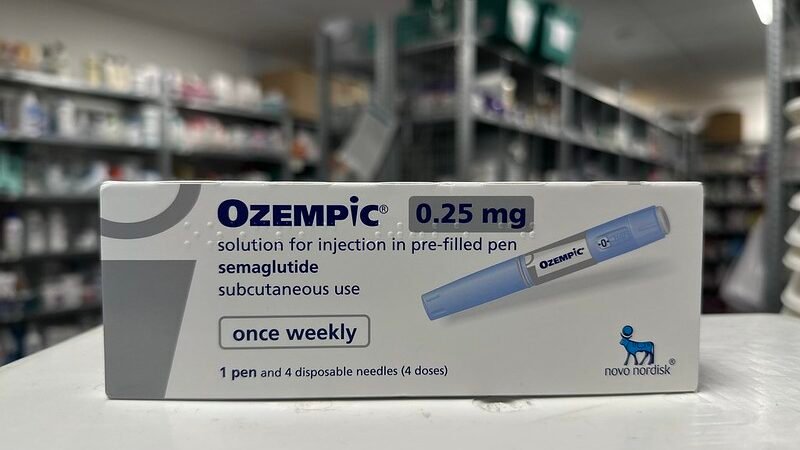Introduction
GLP-1 (Glucagon-Like Peptide-1) has become a hot topic in the medical and wellness communities, particularly for its potential benefits in weight loss and diabetes management. But what exactly is GLP-1, who can benefit from it, and are there any risks or concerns to be aware of? In this blog post, we’ll dive into what GLP-1 is, how it works in the body, who might need it, and the potential concerns surrounding its use.

What is GLP-1?
GLP-1 is a hormone naturally produced in the intestines that plays a critical role in managing blood sugar levels and regulating appetite. After you eat, GLP-1 is released into the bloodstream, where it helps to lower blood sugar by:
- Stimulating insulin secretion (which helps cells absorb glucose)
- Inhibiting glucagon release (which prevents the liver from producing too much glucose)
- Slowing down the emptying of the stomach (which helps you feel full longer)
Because of these effects, GLP-1 has become a valuable tool in managing type 2 diabetes and, more recently, has been used for weight loss.
GLP-1 Medications: How Do They Work?
GLP-1 receptor agonists are medications that mimic the action of the natural GLP-1 hormone. These drugs are typically prescribed to people with type 2 diabetes to help control their blood sugar levels. However, many have found that GLP-1 medications also aid in significant weight loss, leading to their use as a treatment for obesity.
Some common GLP-1 prescribed medications include:
- Semaglutide Injection (found in brands like Ozempic ® and Wegovy ®)
- Liraglutide (found in brands like Saxenda ® and Victoza ®)
- Tirzepatide GLP-1/GIP Receptor Agonist (found in the brand Mounjaro ®)
- Dulaglutide (found in brand Trulicity ®)
These medications work by increasing the body’s response to insulin after meals, helping to manage blood glucose levels more effectively, and reducing appetite by slowing digestion.
Who Needs GLP-1?
GLP-1 receptor agonists were originally developed for individuals with type 2 diabetes who struggle to maintain healthy blood sugar levels through diet and exercise alone. However, the discovery of their weight-loss effects has broadened their use to people who are overweight or obese, even without diabetes.
1. People with Type 2 Diabetes
GLP-1 medications are highly beneficial for individuals with type 2 diabetes, as they help control blood sugar levels, often reducing the need for insulin. By stimulating insulin production and regulating glucose, GLP-1 receptor agonists can improve glycemic control and even lower the risk of cardiovascular issues.
2. People Struggling with Obesity
Weight loss is one of the most significant non-diabetes benefits of GLP-1 medications. Studies have shown that these drugs can help individuals lose significant weight by reducing appetite, making them a potential solution for people with obesity or those who struggle to lose weight through diet and exercise alone.
3. Those at Risk for Cardiovascular Disease
In addition to weight loss and blood sugar control, GLP-1 medications have been found to reduce the risk of heart attacks and strokes in people with cardiovascular disease. This makes them a valuable option for individuals with diabetes or obesity who are also at high risk for heart-related conditions.
Concerns and Side Effects of GLP-1
While GLP-1 receptor agonists offer many benefits, they are not without their concerns. As with any medication, there are potential side effects and risks to consider, especially if you’re using them for weight loss without a medical necessity like diabetes.
1. Gastrointestinal Issues
One of the most common side effects of GLP-1 medications is gastrointestinal discomfort, including nausea, vomiting, diarrhea, and constipation. These issues often occur as the body adjusts to the medication, but for some, they can be persistent or severe enough to warrant discontinuation.
2. Hypoglycemia
While GLP-1 medications help lower blood sugar levels, there’s a risk of hypoglycemia (low blood sugar) when combined with other medications like insulin or sulfonylureas. This can lead to symptoms such as dizziness, sweating, confusion, and shakiness. People taking GLP-1 for diabetes need to monitor their blood sugar levels closely, especially when starting or changing doses.
3. Pancreatitis
Although rare, there have been reports of pancreatitis (inflammation of the pancreas) in individuals using GLP-1 receptor agonists. Symptoms include severe abdominal pain, nausea, and vomiting. Anyone experiencing these symptoms while on GLP-1 medication should seek immediate medical attention.
4. Gallbladder Problems
There is some evidence that GLP-1 medications can increase the risk of gallbladder disease, including gallstones. This is thought to be due to the rapid weight loss that sometimes occurs, which can disrupt the normal functioning of the gallbladder.
5. Thyroid Cancer Risk
Animal studies have shown that GLP-1 receptor agonists may increase the risk of thyroid tumors, particularly a type of thyroid cancer called medullary thyroid carcinoma. Although this risk hasn’t been conclusively proven in humans, it’s a concern that warrants further research. Individuals with a personal or family history of thyroid cancer should discuss this risk with their healthcare provider before starting GLP-1 medications.
Should You Consider GLP-1?
GLP-1 receptor agonists can be incredibly effective for managing type 2 diabetes and aiding in weight loss, but they are not for everyone. If you’re struggling with blood sugar control or obesity and have not had success with lifestyle changes alone, GLP-1 medications may be worth considering. However, it’s essential to consult with a healthcare professional to weigh the potential benefits and risks.
Who Should Avoid GLP-1 Medications?
- People with a history of pancreatitis or gallbladder disease
- Individuals with a personal or family history of thyroid cancer
- Anyone who is allergic to GLP-1 medications
- Pregnant or breastfeeding women
Conclusion
GLP-1 medications offer exciting possibilities for those managing type 2 diabetes, struggling with obesity, or even looking to reduce their risk of heart disease. However, as with any medication, there are potential side effects and concerns to consider. Whether you’re seeking better blood sugar control or exploring options for weight loss, it’s important to have an open and informed discussion with your healthcare provider to determine if GLP-1 is right for you.


